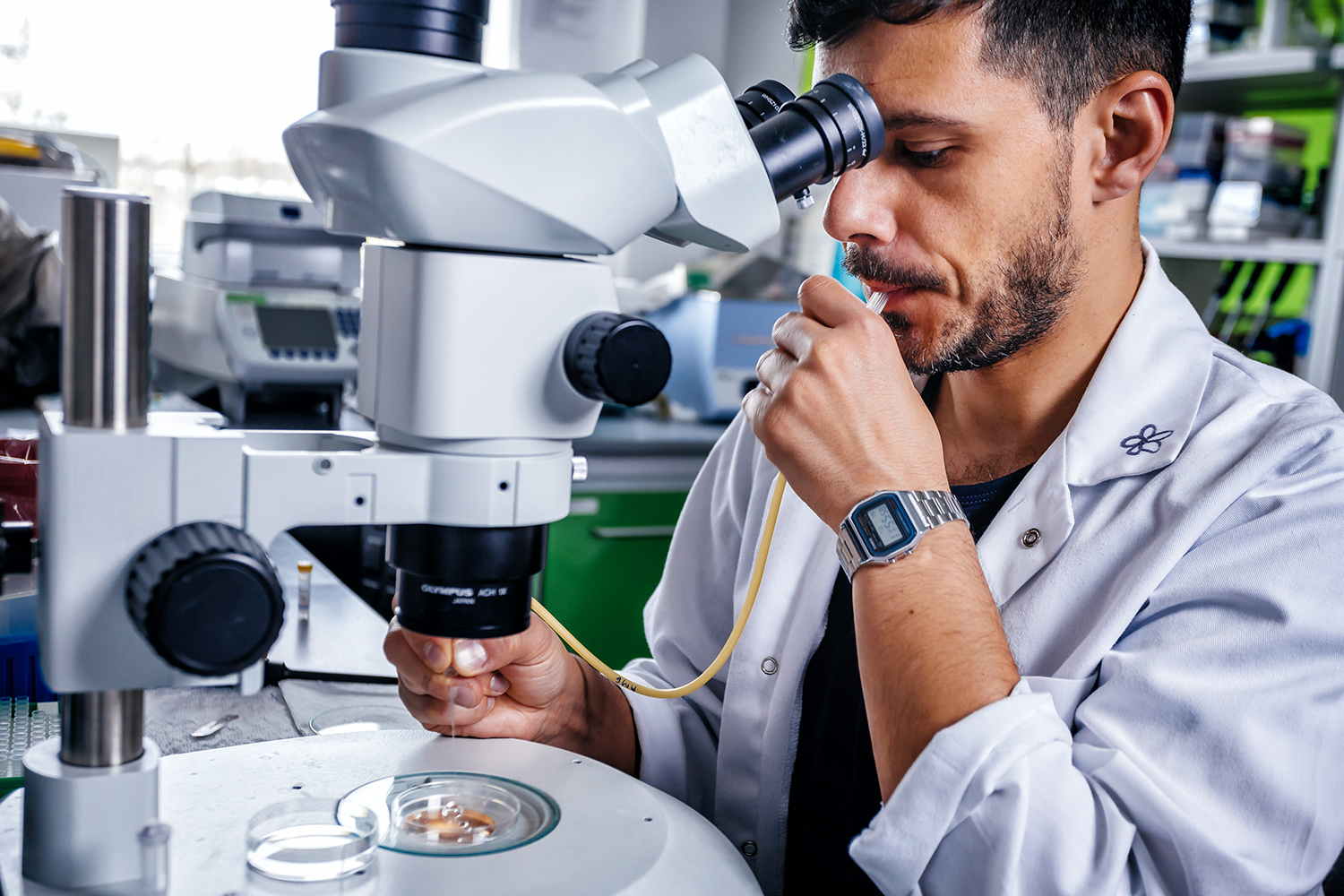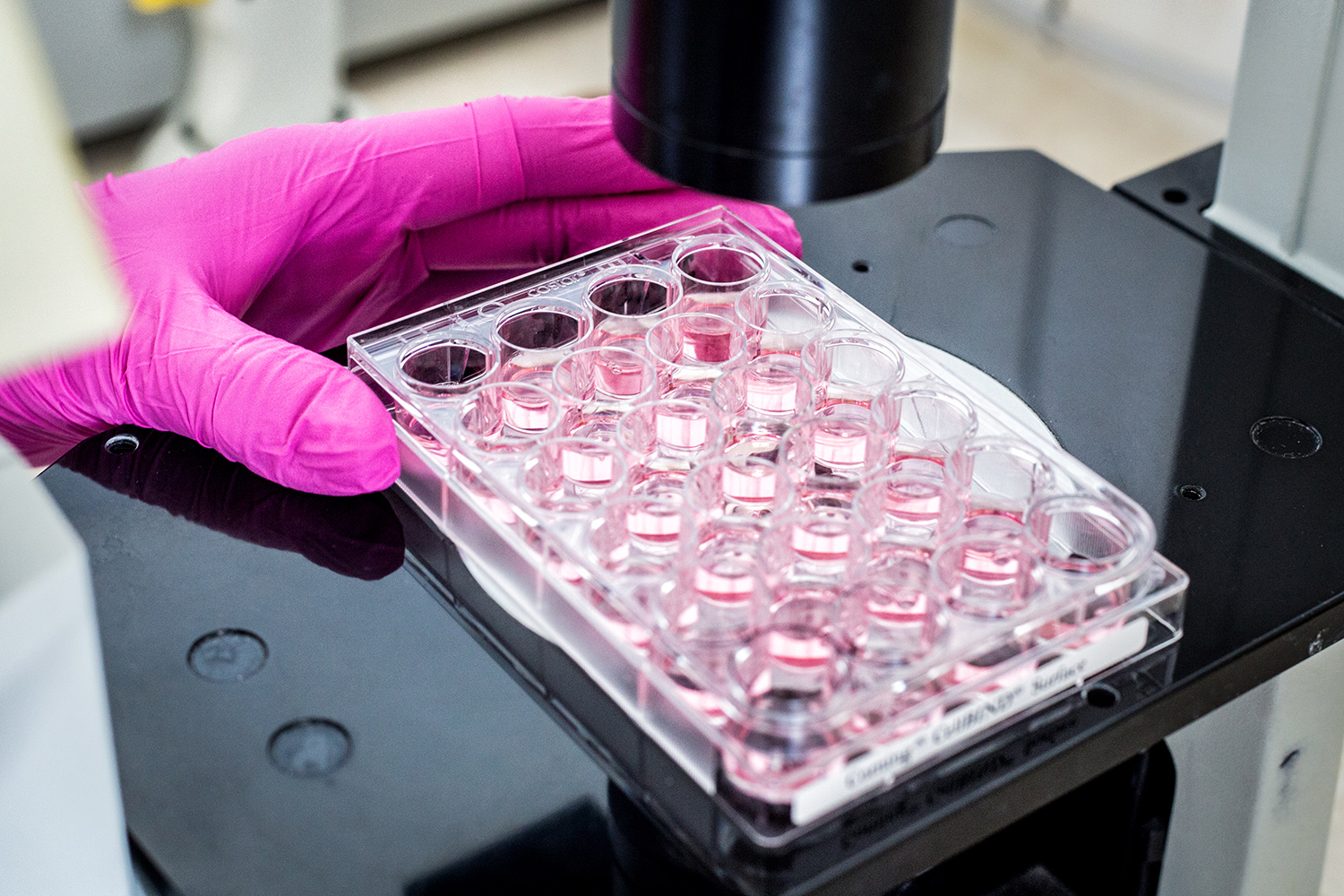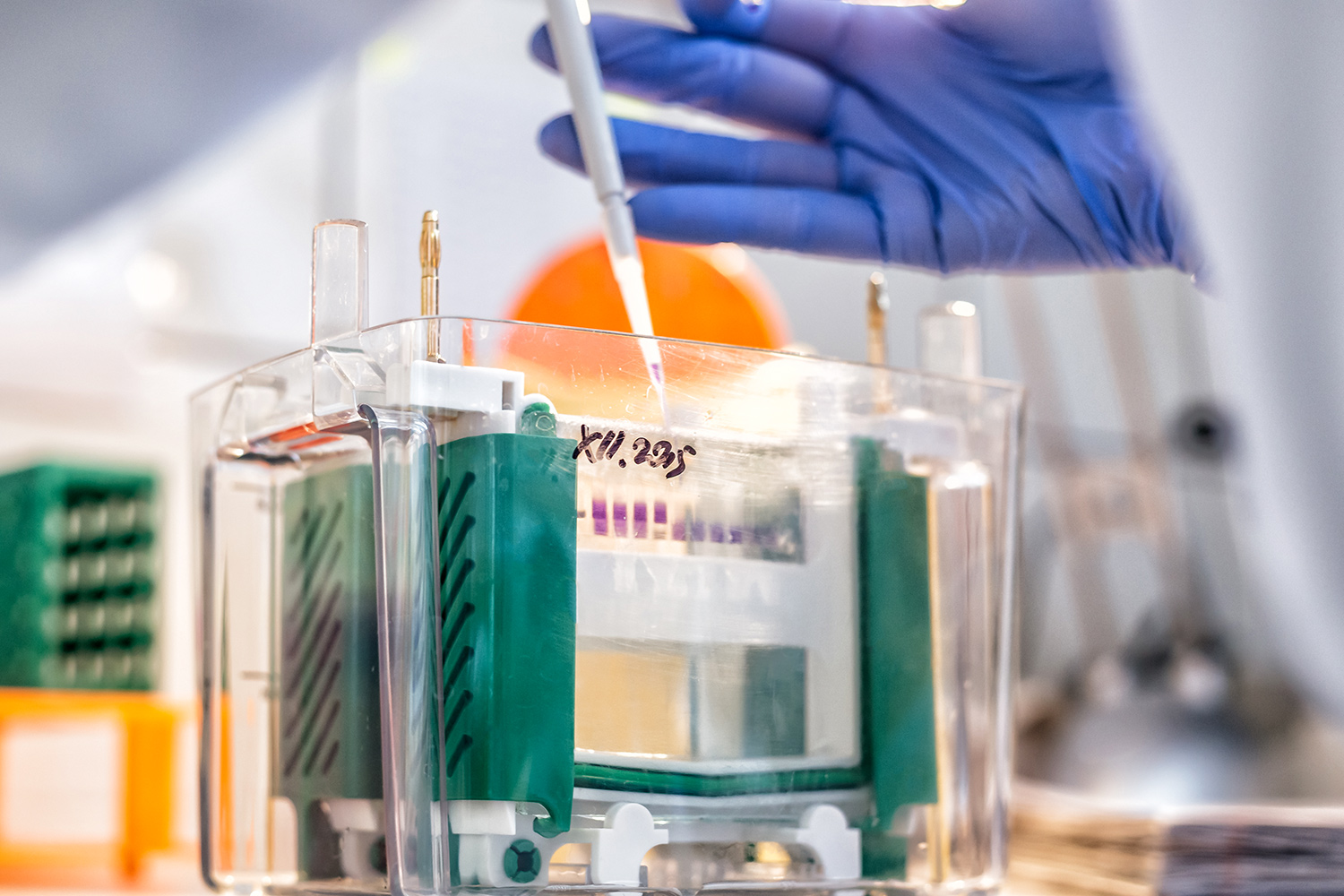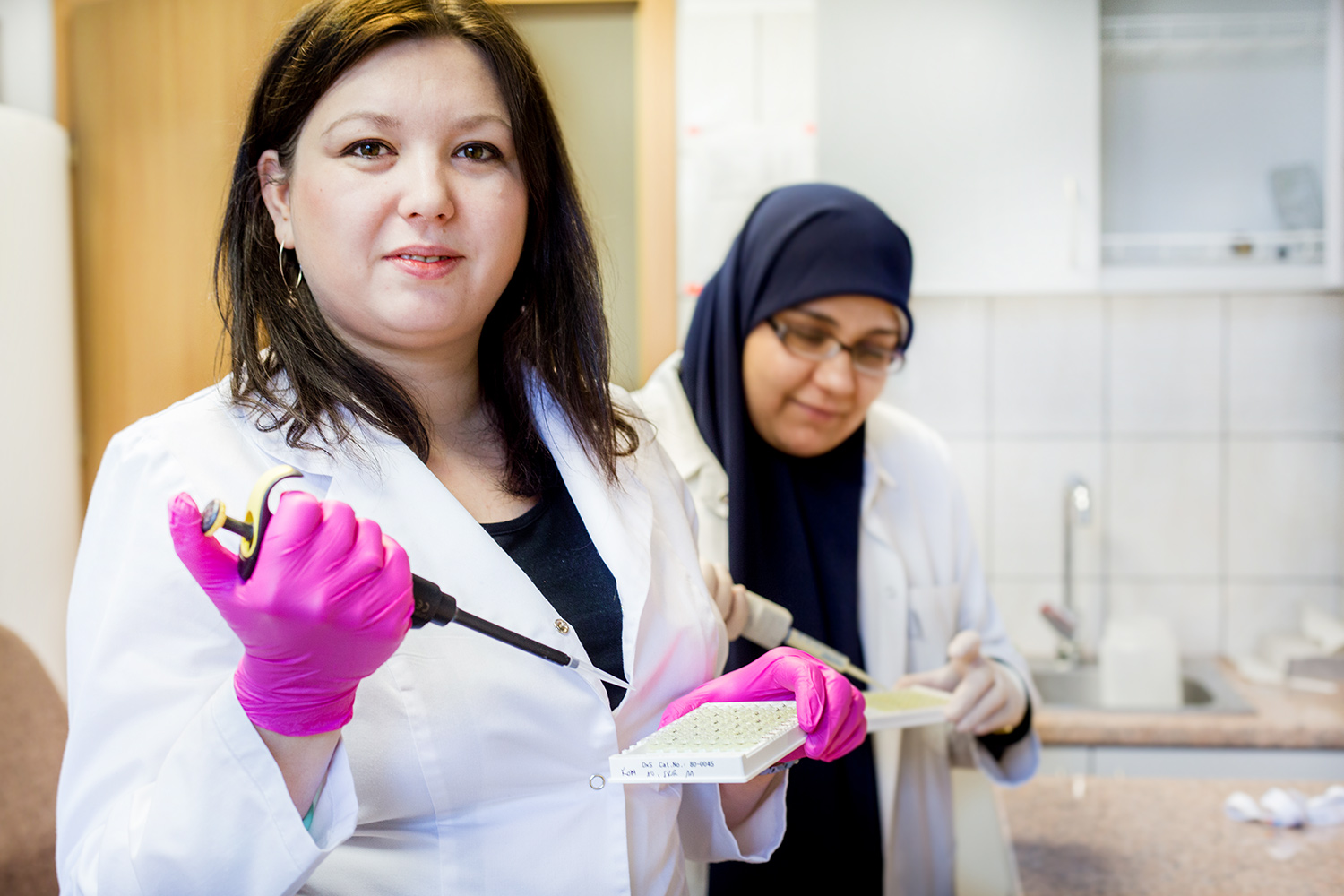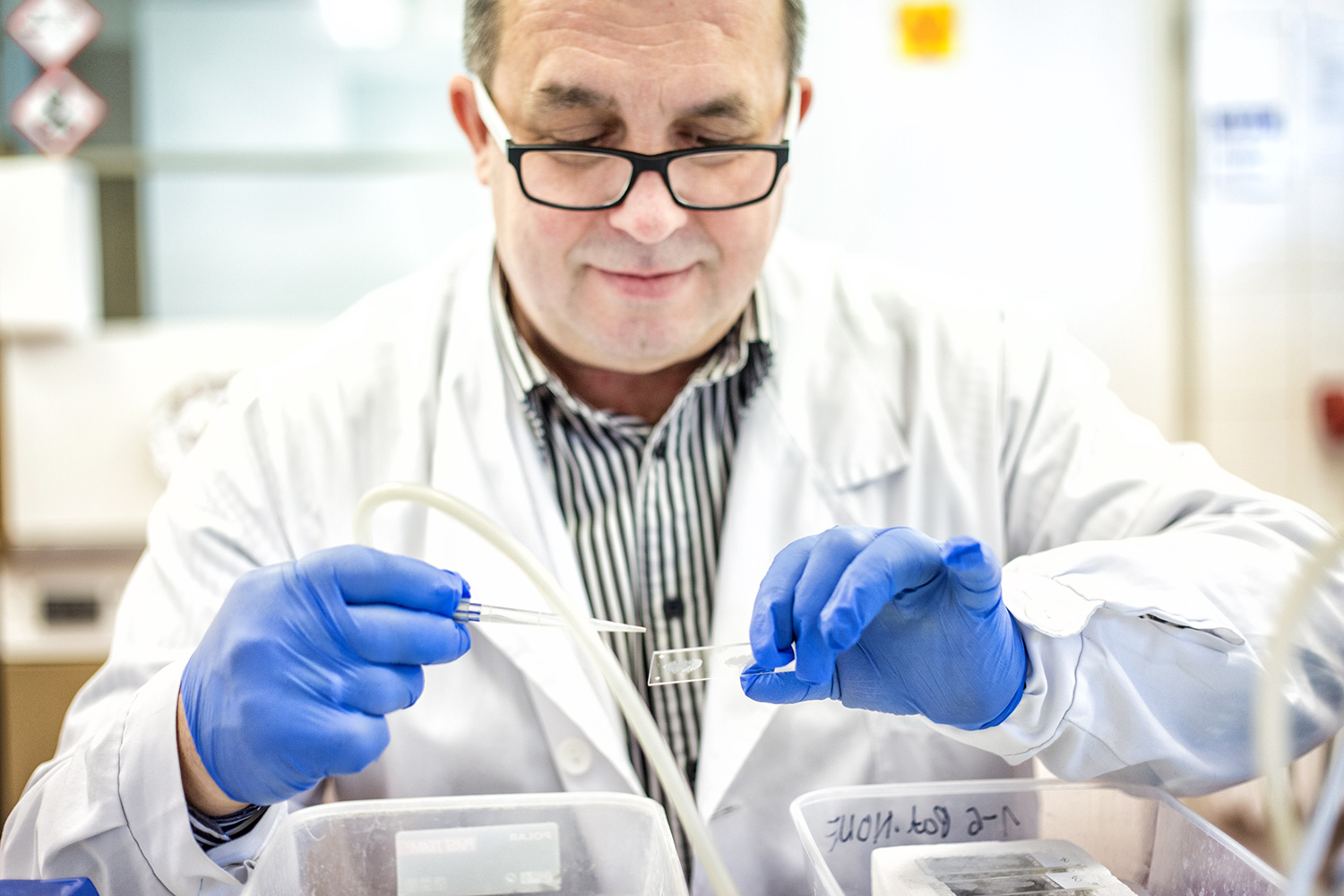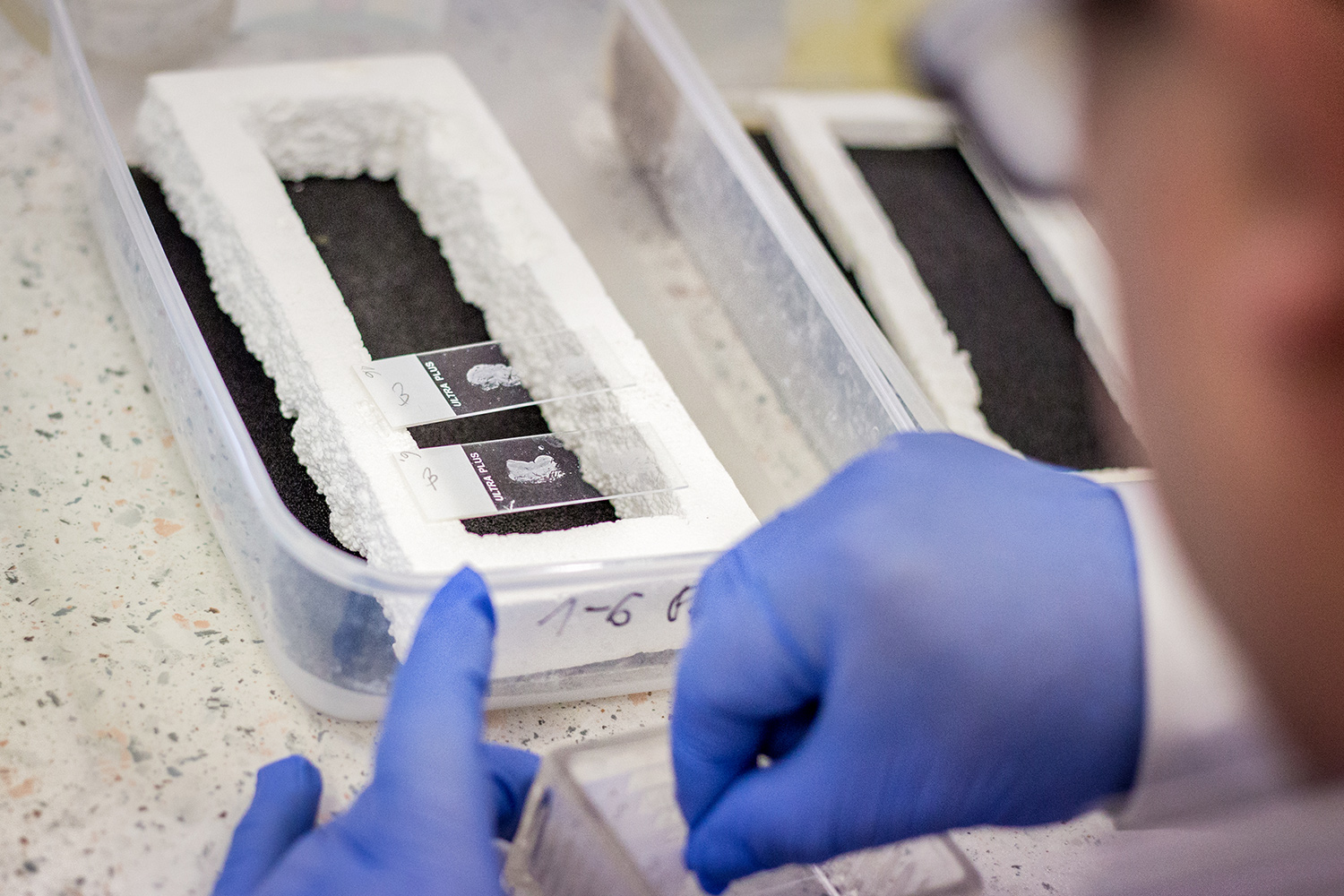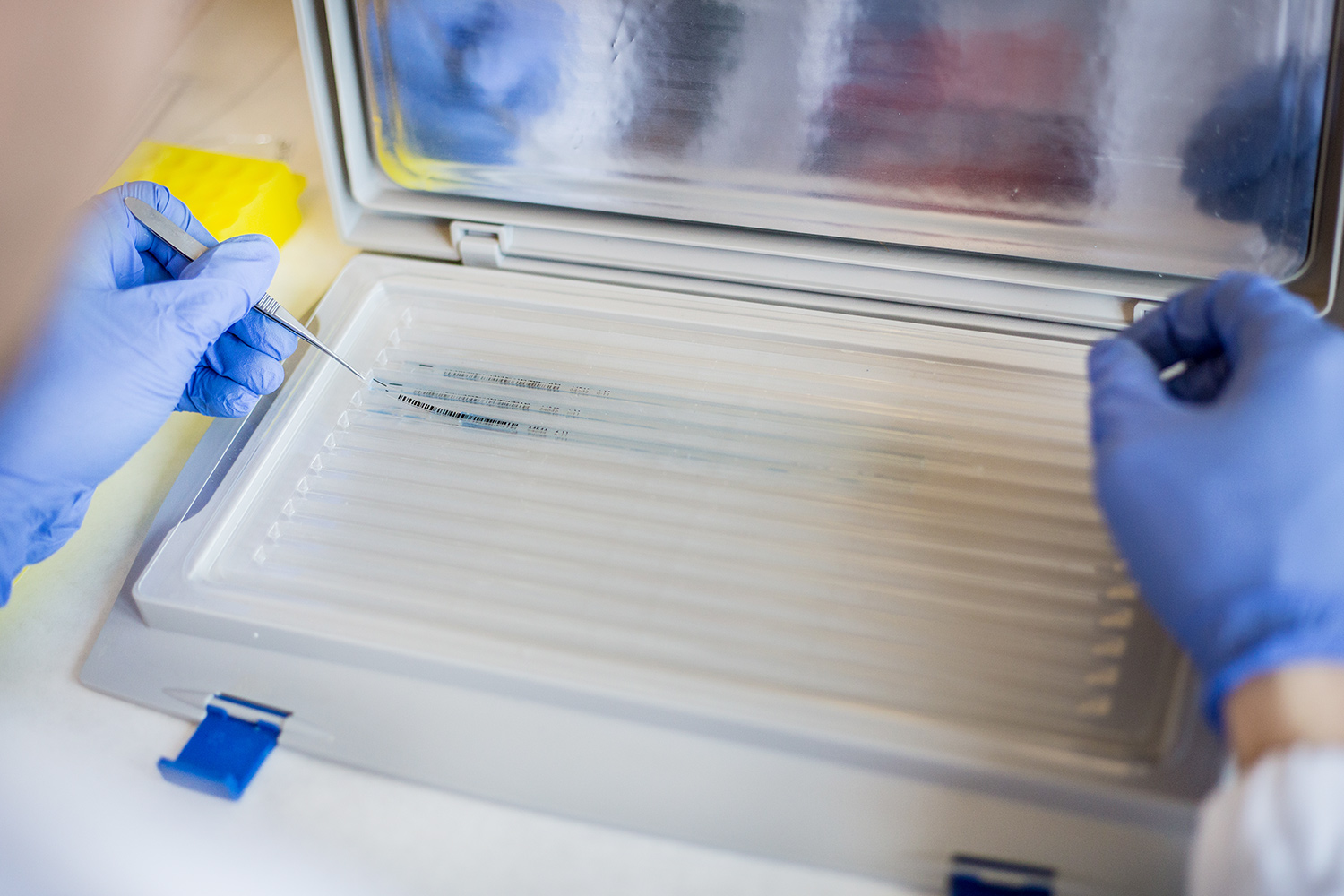Department of Reproductive Immunology and Pathology (ZIPR) came into existence in 2009 with fusion of Department of Reproductive Immunology and Department of Reproductive Pathology (Department of Experimental and Developmental Endocrinology previously)
The studies are focused on the endocrine, immunological and neurological mechanisms regulated reproductive processes, both in physiological and pathological conditions, especially regulations of production and action of cytokines and arachidonic acid metabolites in the female reproductive tract.
Main research activities:
- Immuno-endocrine and molecular mechanisms involved in estrous cycle, pregnancy and birth regulation in farm animals (mares, cows and pigs), domestic and wild being animals (felines).
- Immuno-endocrine mechanisms regulating communication between embryo and mother in early stage of pregnancy on cellular, receptor and molecular level.
- Immuno-endocrine and neurological changes accompanying pathological disturbances in females reproductive organ and mammary gland.
- Participation of peripheral nervous system and immune system in pathophysiology of cystic ovaries degeneration
- Receptor, intracellular and molecular mechanism of actions of hormones, cytokines and other biological active substances and their analogues for potential, practical using in the control of the estrous cycle and early pregnancy, as well potential therapeutics in disorders of peri-parturient period in humans and animals.
- Molecular mechanisms involved in endometrial remodeling during early pregnancy period.
- Global changes in protein profile of corpus luteum associated with its formation, function and regression.
- The impact of obesity in infertility under the scope of ovarian pathogenesis and alterations in the intrauterine development in mice under context of epigenetic changes transferred by the oocyte to embryonic and extra embryonic tissues.
Practical goals:
- Elucidating the causes of the high incidence of early embryonic mortality in domestic animals, especially in ruminants, mares and female cats.
- Introducing new therapeutic, biotechnological methods and biotechniques for of improvement of reproductive efficiency in domestic animals.
- Creating new alternatives for the chemotherapy strategies/drugs in the therapy of the reproductive system and mammary gland pathologies (neoplasia, inflammations, etc.) which in turn might be enable to restrict the creation of bacteria resistance to chemotherapeutics.
- Creation new methods and strategies for limitation of reproduction in animals that increasing population could bring such sanitarian, epidemiological risk and can disturb the natural ecosystem (un-invasive pharmacology castration of carnivores, etc.).
Development new methods of reproductive biotechnology and biotechniques for the purpose of protect endangered wild species including feline and local breeds of domestic animals. Elucidating the pathogenesis of ovarian and endometrial function mediating reproductive failure during obesity and metabolic imbalance.
